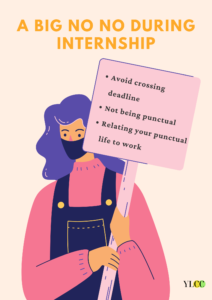
For a law student, internships are perhaps the most important element of his or her co-curricular goals. Compared to other professions, internships are considered to be of paramount importance in law school. Even though the scope of internships in law are varied, the sphere is highly competitive given the number of law students in the country, especially in the light of limited opportunities.
It is therefore, important that an individual exploits an internship opportunity to its fullest, in terms of gaining knowledge and professional experience, as well as networking and exploring one’s interests. Especially for those who are looking for job prospects, an internship can be a one-time opportunity to make a strong impression
In this article, YLCC brings you some tips to get the most out of your internship as a law student or professional. Read On!
- Take an interest in the company you are working for prior to the start of your internship. Read up on their history, work, and their goals.
- Set goals for what you would like to accomplish or learn during the internship. This will give you something to strive for while you are working there. Make sure your internship supervisor is aware of any academic requirements that you need during an internship.
- Arrive early, and if they need your help, stay late. Treat your internship like an actual job even if you are not being paid for the work. Observe proper working hours. This shows that you are sincere in your approach and that you are interested in learning instead of a mere certificate.
- Show willingness to learn new skills and initiative to take on projects. Do not wait for someone to hand you something interesting. Ask for it.
- Communication is important. Be proactive in interacting with your seniors and discussing tasks. Once a task is complete, make it a point to ask for feedback that you can inculcate.
- Contact your co-workers and try to know each other and learn the sense of how and what they do. Keep in touch with them even after your internship for your professional growth. You never know when an opportunity comes your way!
- The better your relationship with the other employees or the supervisors, the stronger your recommendation will be. For the most part, be diplomatic and cultivate good relations with everyone.
- Always be mindful of your presence towards the supervisor and co-workers.
- Confirm to professional attires at the workplace. Avoid casual dressing. Your attire is your first impression,
- Ask questions to gain unique knowledge and experience from your superior about the company you are working for, knowledge is power, and an internship is the best way to gain that in your professional field.
- In case you are stuck, or are facing an issue with anything, feel free to reach out to your superior. This is an internship, you are not expected to know everything under the sky. With some luck, your superiors will be happy to guide you.
- Learn to take notes of your work and keep your workplace organized so that your work is neat and properly arranged when you are not around.
- Complete your projects by the estimated deadline and ask for more. If your work is overwhelming, ask your superior to prioritize it.
- During your internship or afterward, ask your supervisor or colleagues for coffee or a chat. This would improve your relationship with them and help you share each other’s experiences and knowledge, which is very helpful.
- In any scenario, if you make any mistakes, you must admit it and take responsibility, talk to your superior and tell them you are aware of it. Making mistakes is a part of the learning process. It would help you in practising accountability

Things To Avoid During Your Internship
- Do not ignore company culture
Learning about the workplace culture is also an important task. And learn about the practices followed in the office like working hours, dress code, or the habits of the employees.
- Avoid crossing a deadline or submitting incomplete work
Keeping good time while working in a company is a crucial factor that defines your professionalism. It helps your transition from a student to a professional. Submitting incomplete or half-baked work that has no real value also reflects poorly on your abilities. If there is any prior engagement that is holding you back, one should inform this to the supervisor prior to the deadline.

- Not being punctual.
Being punctual is an essential quality in any profession. Coming late to work or meetings shows that you are not much interested in the job.
- Showing tiredness or boredom.
Interns are expected to be eager and passionate at the workplace. Exhibiting boredom or exhaustion is most likely to be interpreted as disinterest that not only creates a poor impression but is also considered to be disrespectful towards the organisation.
- Relating your personal life to work.
Make a proper distinction between work and personal life and maintain those boundaries. Being too informal at work has its own complications. Arrange your priorities in a manner that does not interfere with your domestic obligations or your workplace.
The above guidelines are meant for general guidance. Needless to say, each internship and workplace has its own code of conduct, ethics and approach to work. It is imperative that interns assess the requirements accordingly and improvise their approach for the best outcome. All the best!
YLCC would like to thank Con-Create for their valuable insights in this article.






